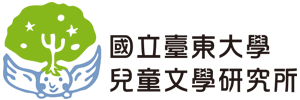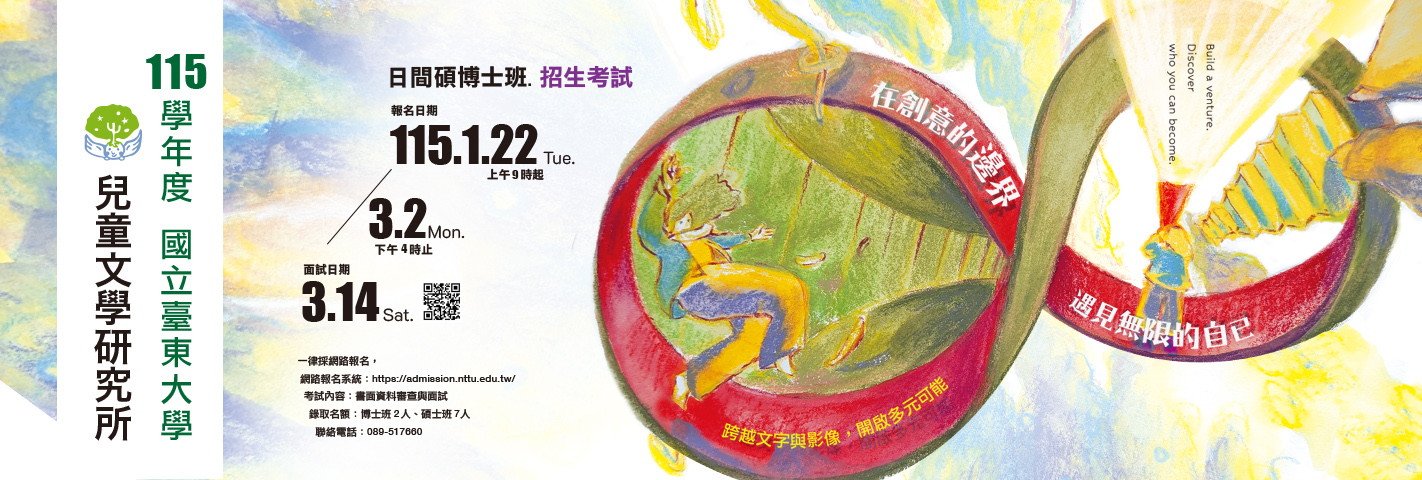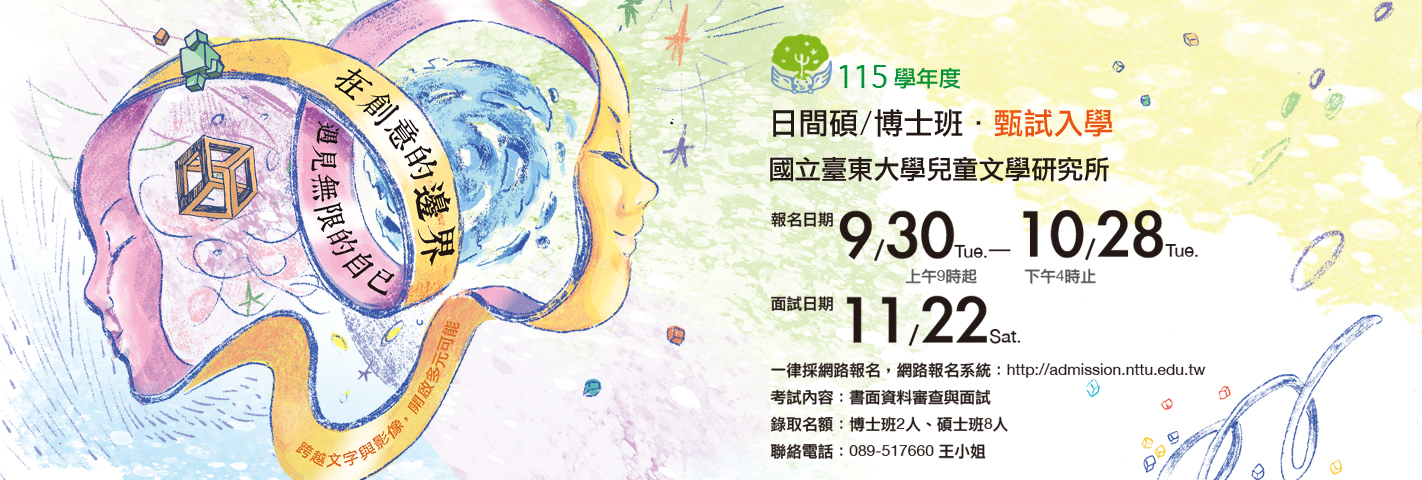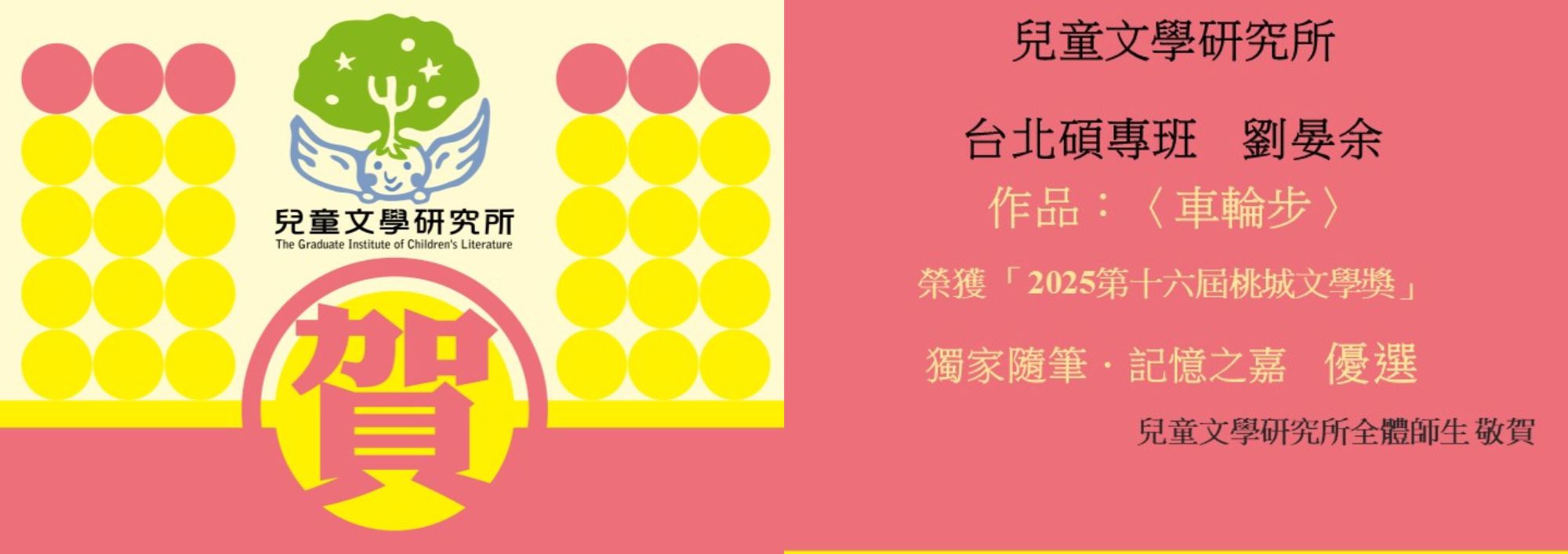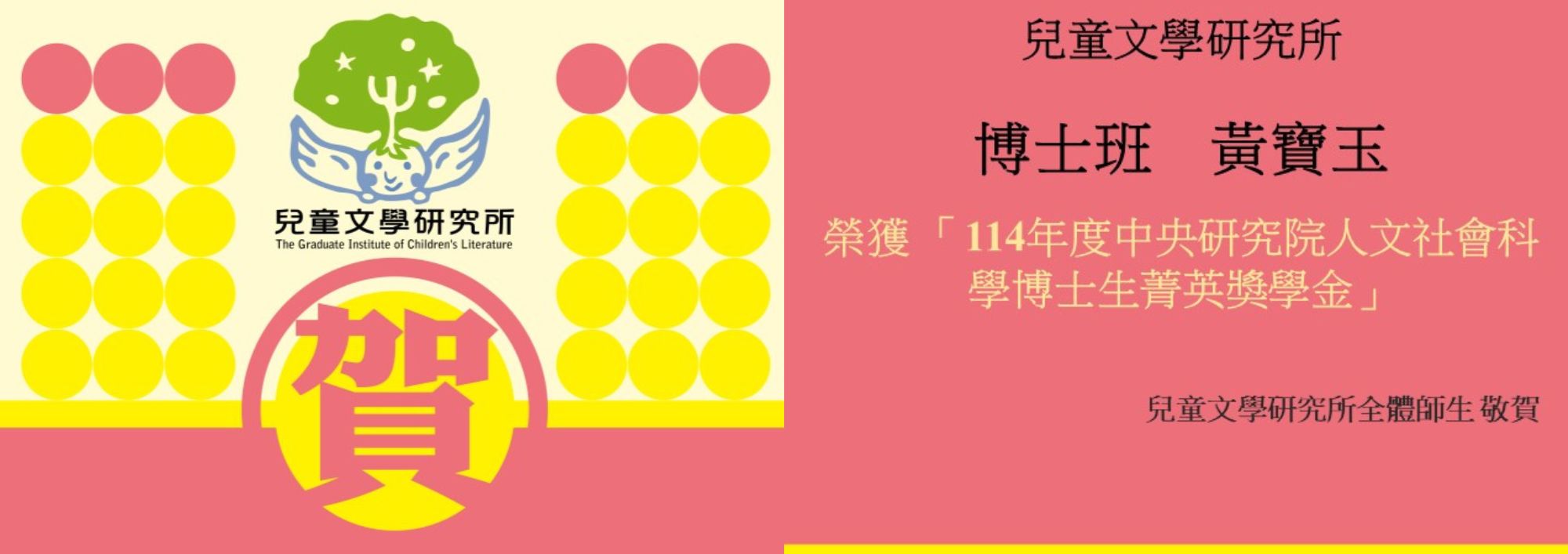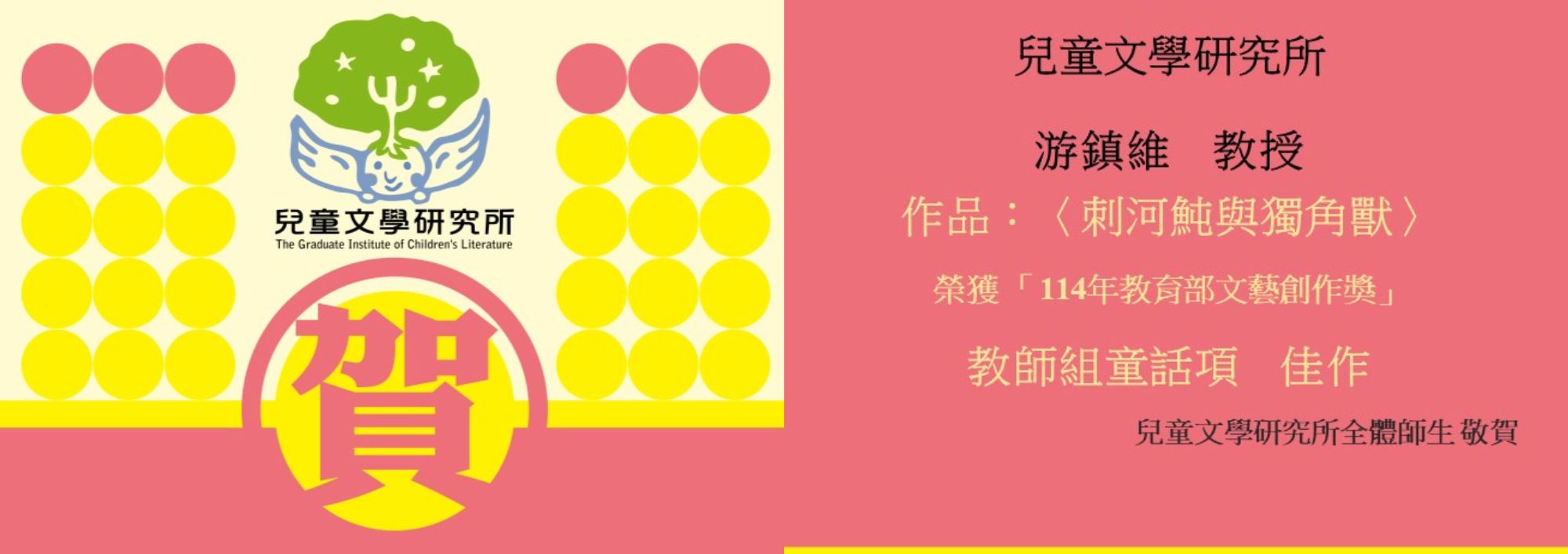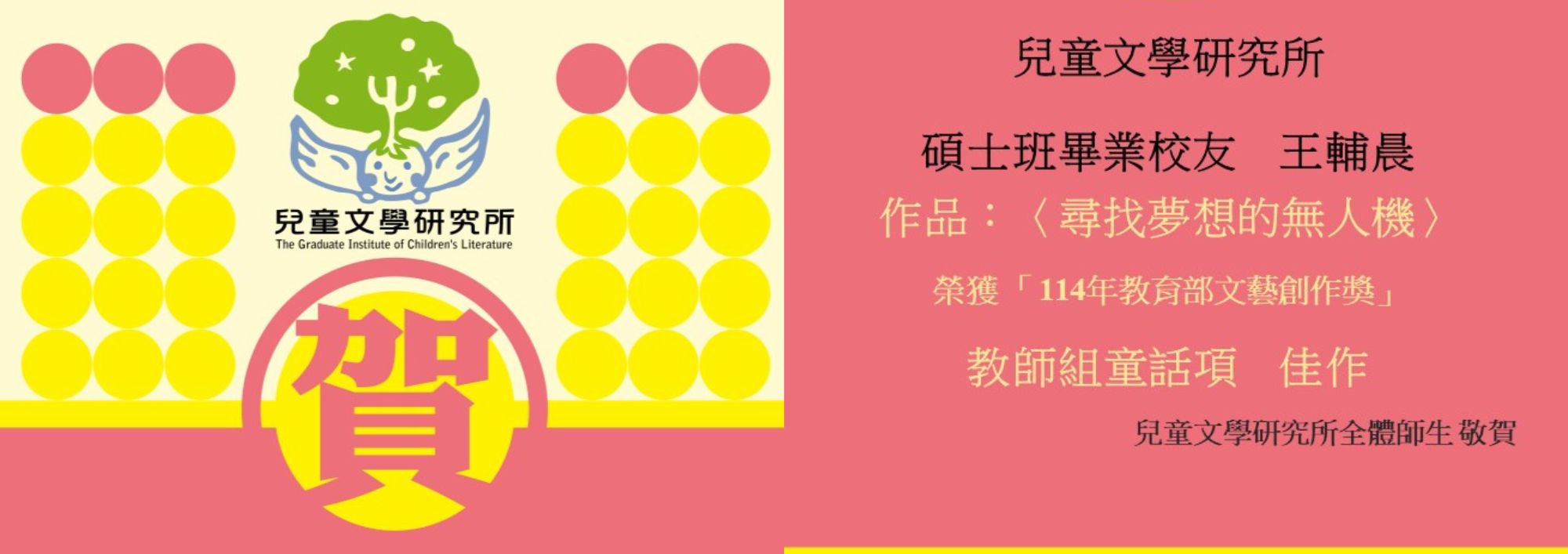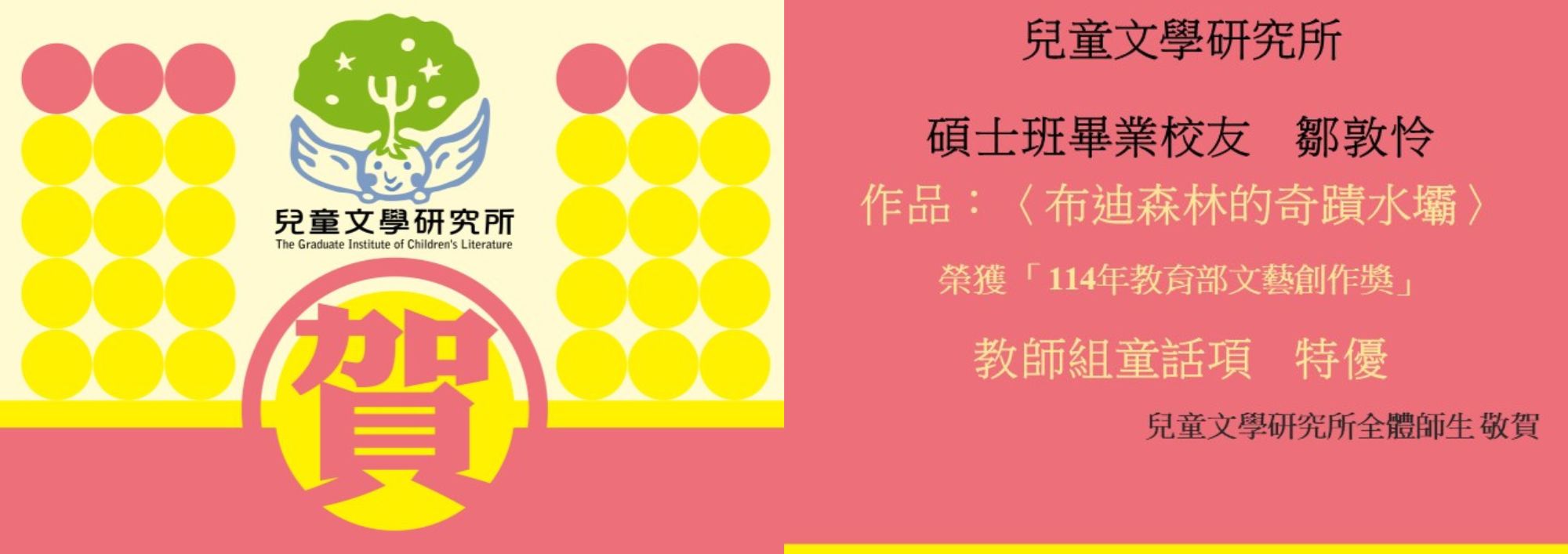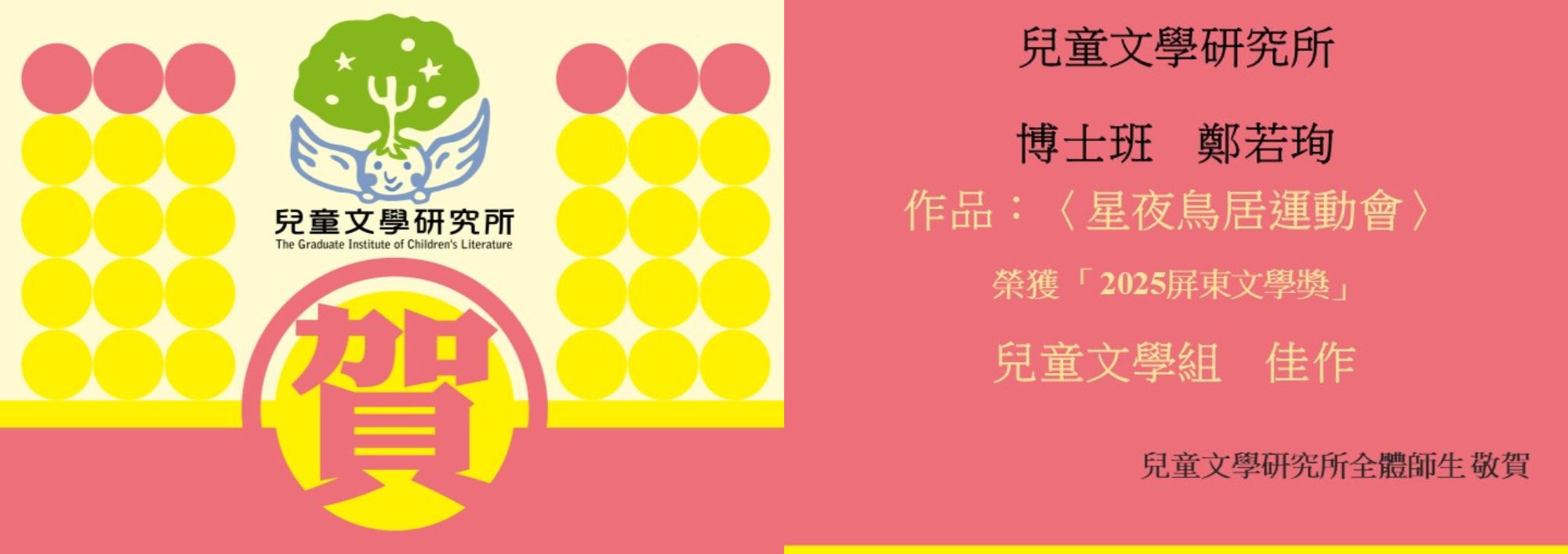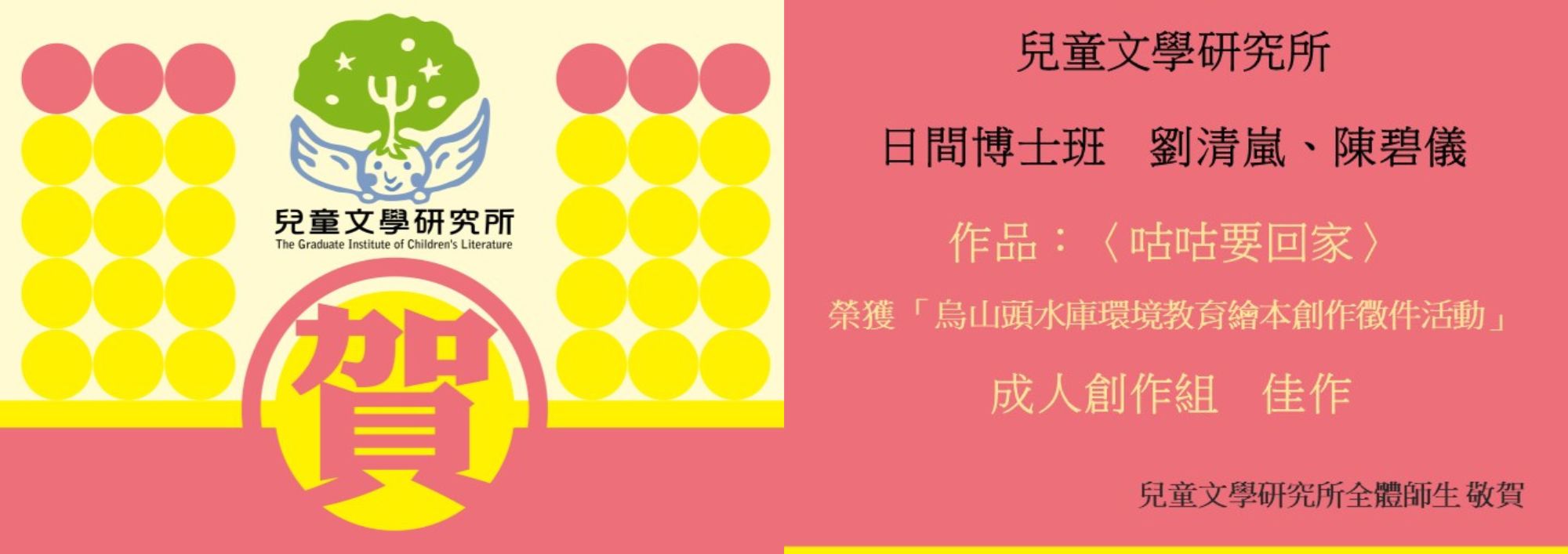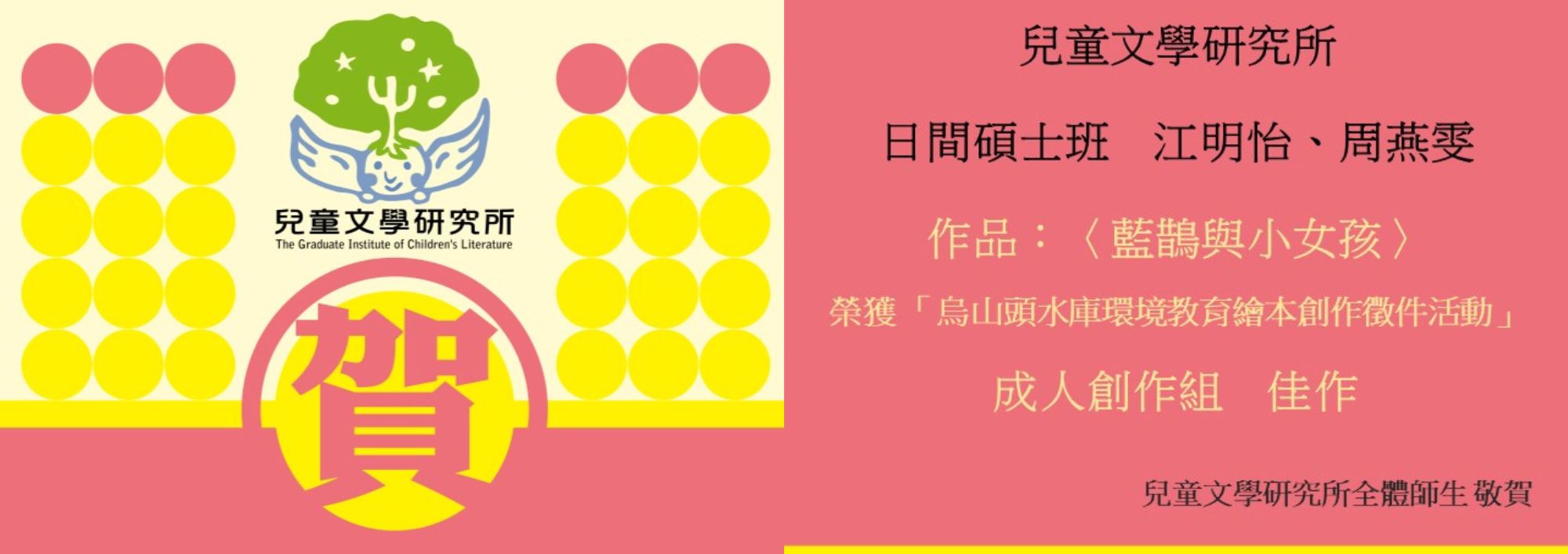Introduction
Introduction
The Graduate Institute of Children's Literature at National Taitung University was founded in 1996, and since then has been the only accredited academic institution within the nation that offers multidisciplinary studies of and research resources for children’s literature and culture. The Graduate Institute also promotes theories and practices of reading, and gears up its students for either further academic work, or creative writing of children’s literature, or any possible professional engagement in the children’s cultural industry.
The Graduate Institute of Children’s Literature offers doctoral and master’s degree programs, including a master’s degree program of continuing education (which currently offers courses on weekends in Taipei). The student body of the Graduate Institute holds a variety of academic interests and disciplinary backgrounds. In view of a student body as such, the Graduate Institute provides great opportunities of channeling diverse student talents and fields of expertise into contributive researches and creative productions for children’s literature and culture. Over the past twenty years the graduates have performed well on the job market and earned a reputation for competence and quality work that meet societal expectations.
Having gone through the three main stages of human civilization, oral, literary and visual, children's literature warehouses an abundance of literary resources. In consideration of the development of academic disciplines, the Graduate Institute of Children's Literature expanded courses in keeping with multi-faceted learning demands. Courses are offered on known literary genres of children’s literature, such as folk and fairy tales, picture books, children’s fictions and young-adult novels, informational books, Chinese fantasies and classics. There are also courses on comics, anime, children’s theater, and children’s cultural studies. On the whole, courses draw on genre studies, literary histories, and literary criticism; they can further furnish learners with sociological perspectives and cultural frameworks. Meanwhile, the Graduate Institute answers societal calls for more productive forces and outputs by adding more courses on creative writing and cultural production (e.g., exhibition planning). The Graduate Institute also on a regular basis invites renowned writers and scholars around the world to participate in forums and run workshops, thereby fostering a dialogic and one-of-a-kind experience of learning and sharing.
Besides a rich course offering, the Graduate Institute features a history of academic exchanges with, as well as educational visits to, established international research institutions of children’s literature and culture, to take those located in Australia, United States, Japan, and Mainland China for example. From 2014 onward, the Graduate Institute runs a peer-reviewed academic journal entitled Bamboo Dragonfly: Children's Literature and Culture and publishes two volumes annually; journal articles, critical reviews, and creative writing are all welcomed.
National Taitung University Library features a rich collection of children's literature and a special collection of children’s books and research materials donated by the emeritus professor of the Graduate Institute, Lin Wen-Pao. To add to the Graduate Institute’s strength and merit, the Children's Reading Research Center hosts seminars and runs workshops on various topics to service communal needs and further the reading education in Taiwan.
Outlook on Future Developments
1. Strengthen students’ ability to conduct independent research, promote creative writing, and cooperate with local educational institutions to cultivate students’ professional engagement.
2. Focus on research as well as creative production. Apply theory to creative practices and professional engagements with cultural industries and extension education.
3. Explore potential research areas and angles within the field of children's literature by convening national and international seminars.
4. Collect, file, and analyze historical materials for children literature’s in Taiwan.
5. Help develop children’s cultural industries by means of integrated interdisciplinary expertise.
6. Solidify international academic exchange with China, Japan, New Zealand, Australia, and other countries.
Career Opportunities
Most of our Ph.D. graduates hold posts in universities and continue researching for children’s literature and children’s education. Our M.A. graduates work as teachers, editors, writers and reading extension educators. The Graduate Institute offers courses on cultural industries and affairs to help prepare students who wish to set up their own careers.
